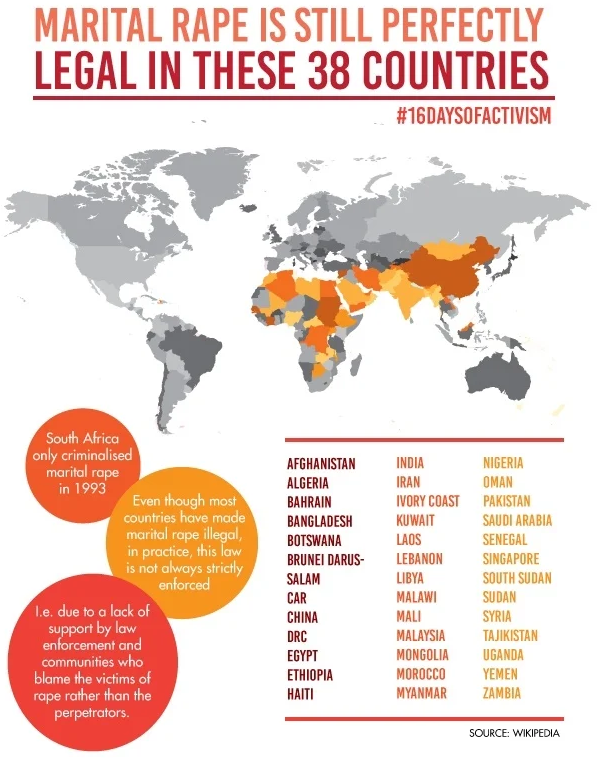Back in 2005-06, in a report presented by National Family Health Survey (NFHS), encompassing the interviews of nearly 80,000 women, highlighted that 93% of those women had been sexually abused by their spouse. Then, in 2015-16, National Family Health Survey (NFHS) reported no improvement; rather, there was an evident spike as the data estimated 99.1 % of such cases to go unreported.
A week after Nirbhaya Case, a committee was formed, to propose the possible amendments to the criminal law, in order to provide a faster trial and enhanced punishments for criminals, which was headed by Justice (Retd.) J.S. Verma.
One of the proposals of the committee was, “the exception for marital rape can be removed” and that it must “specify that a marital or other relationship between the perpetrator and the victim is not a valid defense against the crime of sexual violence.”
Most of the recommendations of the committee have been accepted, but this particular recommendation could not be struck down.
Marital Rape, is yet, not an offense in India. Section 375 of Indian Penal Code, exempts forceful sexual intercourse by a man with his own wife, from the offense of rape, if the age of women is 15yrs or above, is infamously known as “marital rape exemption”.
The ongoing cases in Delhi High Court, against this shield of wedding rights, exempts the perpetrators from being prosecuted for a heinous crime like rape.
Furthermore, this exemption violates the basic rights of a woman, like the right to equality, freedom etc., and defies their authority over their own body.
The whole argument that criminalization of marital rape would upset the institution of marriage and it would be difficult to justify, signifies how misogyny and patriarchy are deeply entrenched in our society.
History and the idea of a wife:
History writings have suggested that women have always been seen as the entity or property of a man (husband), because of her fertility. Therefore, according to that, a man cannot be prosecuted for raping his own wife, since she is his possession. And if another man sexually abused someone’s wife, that would be considered as an act of stealing the property.
Seems like the laws were established to protect the property and interest (sexuality of women) of man and not to protect the woman from the crime against them.
Once a consent, always a consent?
The idea of consent is never implied by what one has said during the wedding ceremony. First consent shall not be treated as forever consent. A few people argue that criminalization of marital rape would be misused, but violating one’s fundamental rights and providing disproportionate justice, wouldn’t do any good as well.
The experts believe that “marital immunity” is like a vicious cycle for the whole society, revolving around the ones who are concerned about the “institution of marriage”, the very fact that a man has to force his wife to enter into a sexual intercourse without her consent, in itself defies the prosperity of the “institution of marriage.”
 According to the World Bank, there are about 78 countries, which have specifically criminalized marital rape. But with the idea of parameshwar or maybe an angel in one’s groom, can a bride think of taking the legal route in this country?
According to the World Bank, there are about 78 countries, which have specifically criminalized marital rape. But with the idea of parameshwar or maybe an angel in one’s groom, can a bride think of taking the legal route in this country?
Probably that’s one of the reasons, why we always expect a girl to be submissive, docile and wary of every decision in life. Therefore, its high time to realize that the institution of marriage stands on equality, where both of the individuals are equals, and not angels. Hence, justice should be given equally.


